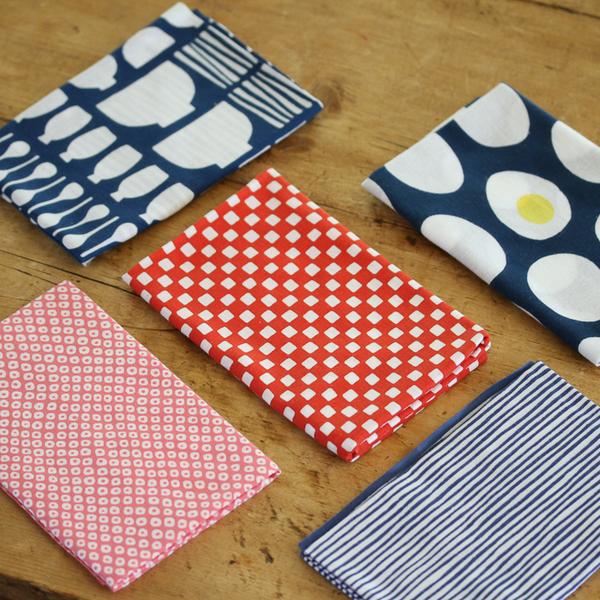Japanese Towels
Posted on March 11 2019

It's just a piece of cloth. A thin, unhemmed piece of cotton. What is so special about tenugui?
An important part of Japanese culture, tenugui are essentially a long piece of fabric with an infinite number of uses. Ours are printed entirely by hand, ensuring that no two are exactly the same.
These lengths of decorated fabric have been used as everything from integral parts of a religious ceremony to head coverings for warriors, who used the cloths to absorb sweat and protect their heads from the weight of their helmets.
Japanese Print from the Edo period (1603-1868).
Tenugui have existed in their current form for over 1200 years. In the Heian period, (794 -1192 AD) tenugui woven in precious materials like silk and hemp first began to be used in Shinto rituals. Over the next four hundred years, as fabric production methods improved and cloth became more affordable, tenugui became mainstream, and people began to use their tenugui for everything from belts to wallets to headscarves and handkerchiefs, and as bags to wrap and carry their possessions.
Tenugui had become an essential part of Japanese life.
Our blue and white striped tenugui.
By the end of the sixteenth century, Japanese farmers began to cultivate cotton as a crop, and before long tenugui became ubiquitous. Soon they were being used as towels in bath houses, and eventually they became so affordable that people began using them as towels and cleaning cloths at home as well.
Photo: Library of Congress
Once everyone could afford a cheap tenugui, the true artists wanted to stand out, and they began to compete between themselves to create ever more beautiful and technically difficult patterns, which led to a noticeable increase in the quality of the designs. Wealthy families commissioned special tenugui with their family crests; while businesses and famous actors and sumo stars gave away or sold tenugui emblazoned with their names and logos.
Vintage Advertising Tenugui
As times changed, people eventually turned to disposable napkins and plastic bags, and for most of the last century, tenugui haven't been as popular as they once were. But in Japan, as in many places around the world, people are beginning to realizing the beauty and intelligence in traditional ways, and tenugui are becoming popular once again.
Most modern tenugui are still made from a light cotton fabric that dries quickly and is very absorbent. With use, the cloth becomes soft and supple, and the patterns fade and begin to relax. Being unhemmed not only encourages a small fringe to form, but it also allows the fabric to dry faster and makes it easier to wring out.


 Modern tenugui making. Images via Some Nippon.
Modern tenugui making. Images via Some Nippon.
There is no limit to the number of ways you can use your tenugui.
- In the kitchen as a dishtowel or cleaning cloth
- At the table as a napkin or place mat
- As a runner along the center of the table
- Wear it as a scarf
- Wrap it around your head to protect from heat, sweat, sun, or just for looks.
- Use it to cover a shelf
- Upholster a cushion or chair base with it
- Wrap up your belongings when you travel
- Wear it as a sarong at the beach or pool
- Use it as a towel after a swim or quick wash
- Bring it with you on a hike
- Use it to wipe your glasses
- Use it as a handkerchief or pocket square
- Offer it to guests as a handtowel
- Hang a pair of tenugui as curtains
- Use it to wrap gifts or fragile items
- Hang it on your wall for decoration
Image from Japan Local Guide.
Read this article on the history of tenugui.
See our entire collection of tenugui here.







